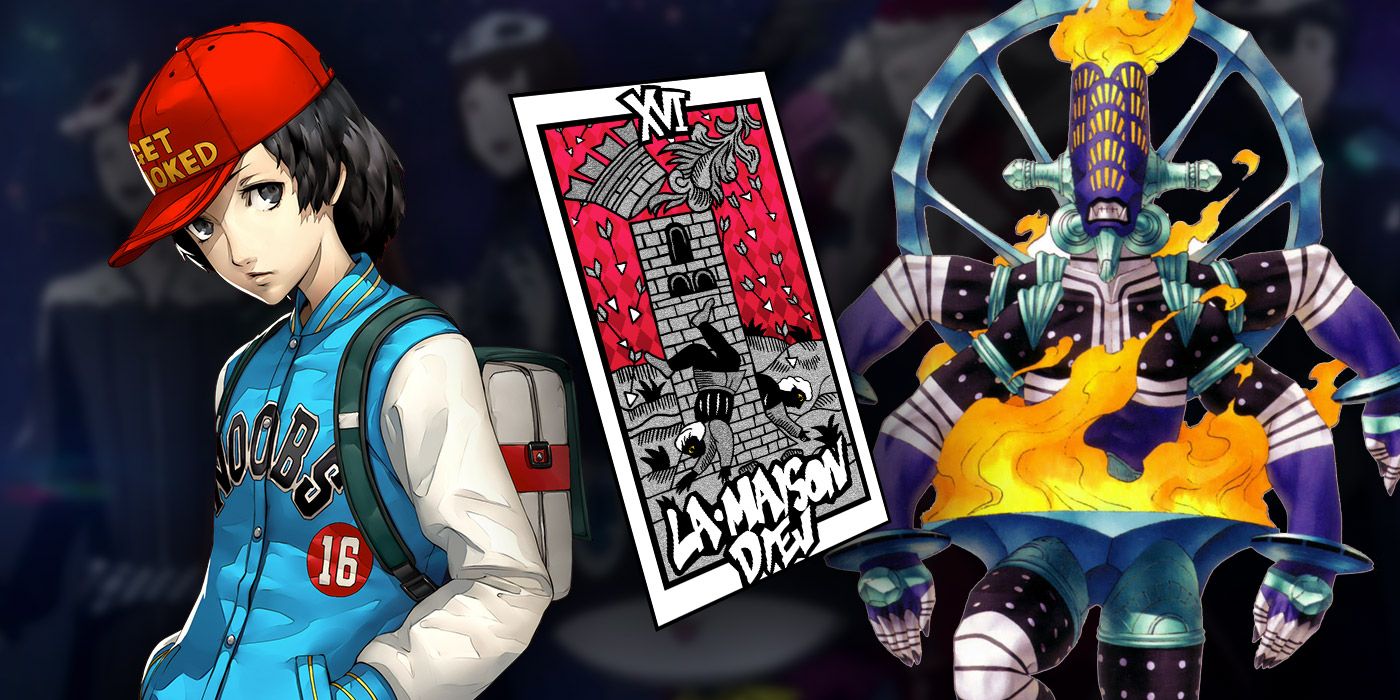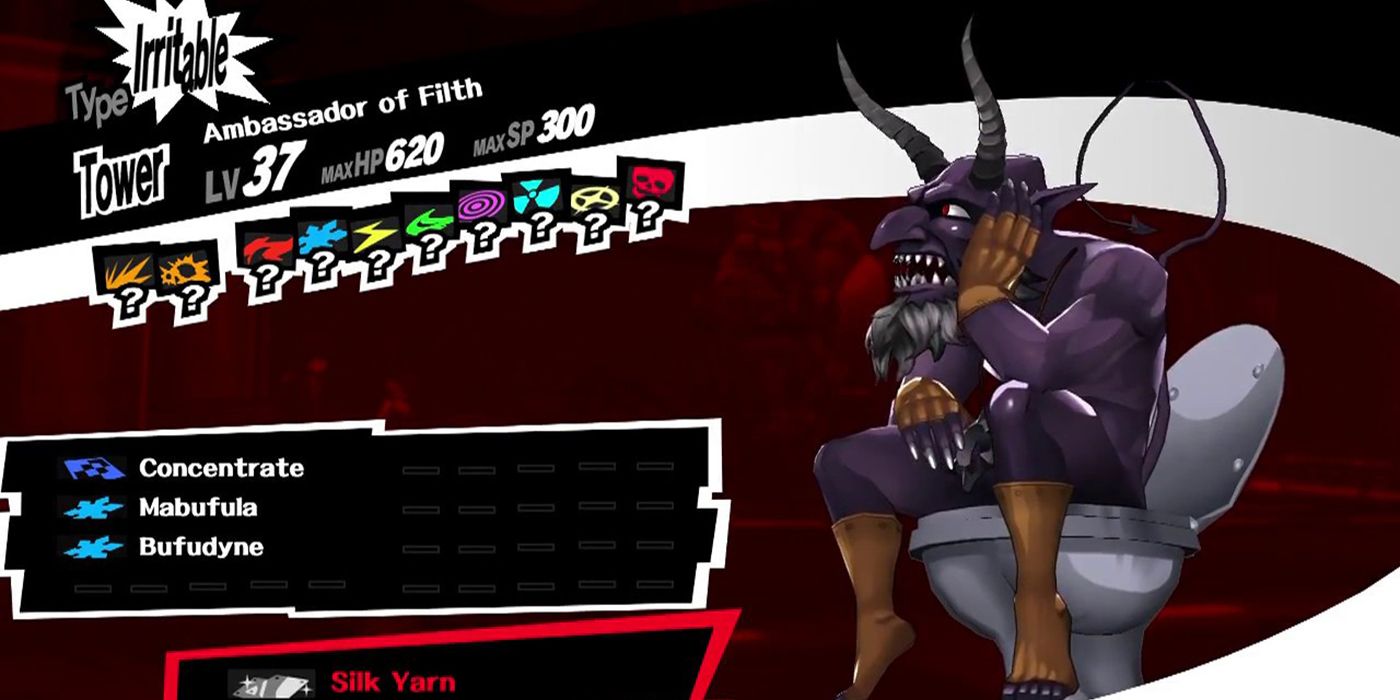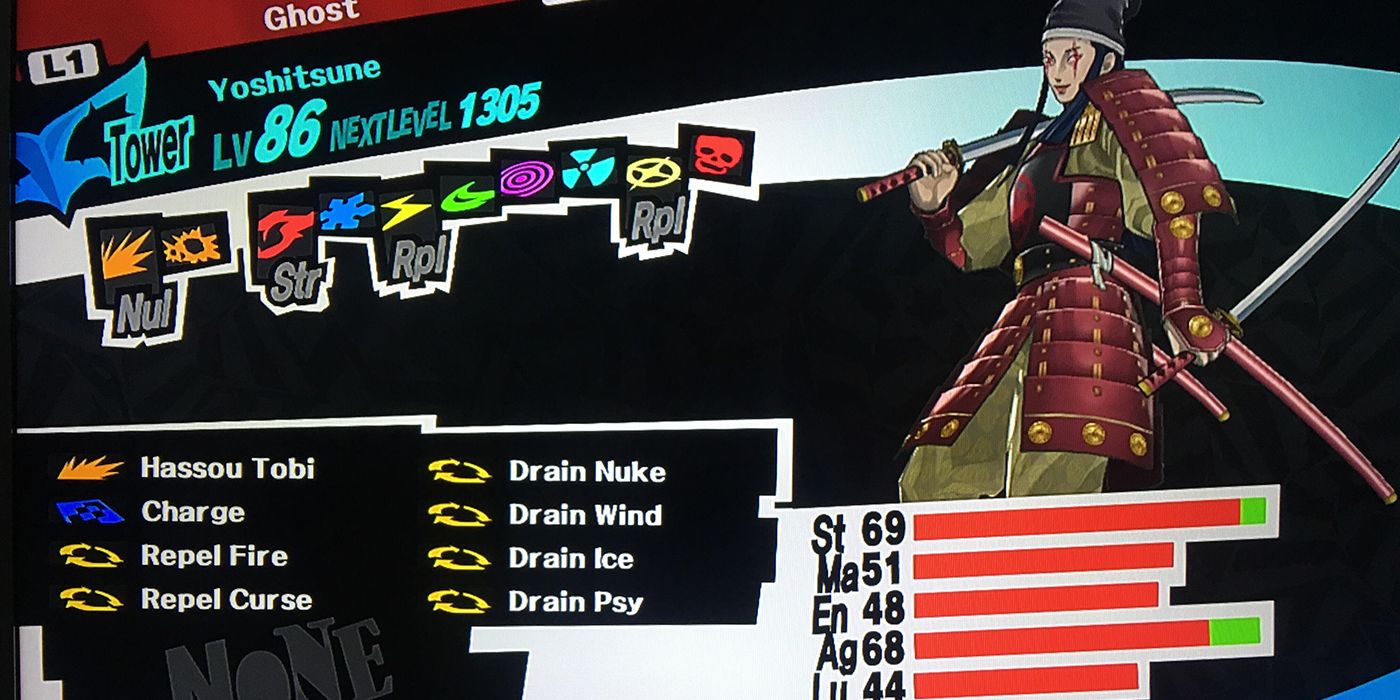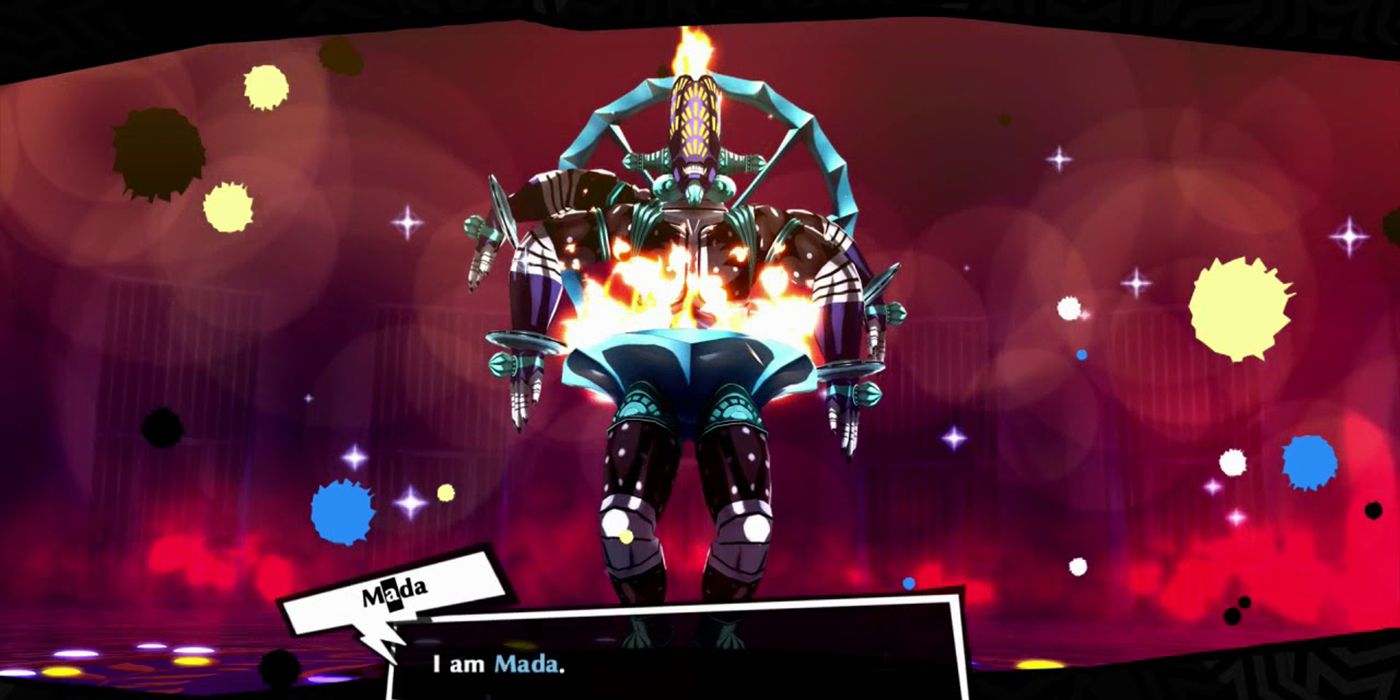In the tarot deck, most of the Major Arcana are fairly ambivalent in meaning. Even the Hanged Man, Death, and Devil cards have their silver linings. Outside the context of Persona 5, The same cannot be said of The Tower, however. It is unquestionably the worst card that can appear in a reading. This is because The Tower has a very specific meaning: pride before a fall. It is a portent of disaster, cruel irony, and a warning against arrogance all rolled into one. This uniform negativity would not gel well with Persona 5's mechanics, however, where every confidant represents virtues that compete with a card's negative qualities. Atlus found a way to 'reverse' the card's typically dismal values with its confidant, Shinya Oda.
When Joker first meets Shinya, AKA "The King," he is an arrogant, ambitious, and domineering brat. He has married his worth as a person to his prowess at the fictional arcade shooter, GunAbout, and only cares about becoming stronger. But there is much more to Shinya than meets the eye. He is deeply concerned about being a burden to his mother, and ultimately has heroic aspirations, like his idols, the Phantom Thieves. Thanks to a well-timed change of heart, and a whole lot of guidance as a big brother figure, Joker helps guide Shinya back to a path of righteousness and victory.
It is a testament to Atlus' storytelling that they managed to find a positive flipside to the Tower arcana's uniformly dismal portent of doom. The specific virtues Shinya exhibits are learning from his mistakes, embracing humility, and using his boundless determination to bounce back from an embarrassing defeat. The same cannot be said for the Persona's associated with the arcana however, which include avatars of self-destruction and disgraced heroes.
Belphegor - Lord of Sloth
Belphegor might have the most ridiculous and ignoble design of any persona in the game: a horned demon squatting on a toilet. In demonology, Belphegor is labeled the lord of sloth and master of laziness. He could also be described as the patron saint of get-rich-quick schemes. When summoned, Belphegor supposedly provides people with insight to create wonderous inventions that shall make them fabulously rich. But this is ultimately a trap: the advice Belphegor provides will lead his summoner down a path of procrastination, navel gazing, and unproductivity.
He is also an entity who is strongly associated with sex and debauchery. Once summoned, Belphegor's appearance can vary wildly. He may adopt the form of a beautiful nude woman, or look like a stereotypical demon with leathery flesh, curling horns, cloven hooves, and sharp, unkempt nails. As an angel, prior to his fall from grace, Belphegor was a member of the order of Principalities, a persona represented in the Justice arcana. In Kabbalistic writings, his demonic-self is the antithesis of the sixth sephirot on the tree of life, representing beauty.
But what's the deal with the toilet? According to certain rabbis, those who worship Belphegor must do so on a toilet and make offerings of... what one would expect. As the first Tower arcana players can acquire, Belphegor is quite weak, best used as fusion fodder, and forgotten thereafter.
Yoshitsune - The Tragic Hero
Not all of the Tower's personas are uniform disasters like Belphegor. Some, like Minamoto no Yoshitsune, are tragic heroes who have fallen from grace. Yoshitsune was a samurai general in the late Heian and early Kamakura period. After losing his family to the Heiji Rebellion, he was taken in by Kurama-dera, a temple in Kyoto that was a member of the Tendai sect of Mahayana Buddhism. He became an extremely skilled swordsman, besting the warrior-monk, Benkei, in a duel, who is a folk hero in his own right.
Yoshitsune later joined forces with two of his brothers, Yoritomo and and Noriyori, to crush the Taira clan in a series of battles called the Genpei War. On Yoritomo's order, Yoshitsune also killed a rival heir to the Minamoto clan at the battle of Owazu. For his efforts, Yoshitsune was awarded governorship of Iyo by the current emperor, Go-Shirakawa. But his jealous brother, Yoritomo, had these titles nullified, and forced Yoshitsune to retreat from Kyoto.
Like many of the Phantom Thieves' personas, such as the Chariot's Captain Kidd, Yoshitsune met a tragic end. Betrayed by the allies who promised to shelter him after his flight from Kyoto, he was forced to commit seppuku. His head was then preserved in sake, and mailed to his treacherous brother, Yoritomo. As a representative of the Tower arcana, Yoshitsune could be considered arrogant in assuming his prowess on the battlefield would protect him from all threats, only to ultimately be brought low by a former ally and brother.
Mada - Deity of Drunkenness
Mada (not to be confused with the phallic chariot demon, Mara, who is also a member of the Tower arcana) is the Hindu deity of Drunkenness. An enormous rakshasa, or demon, with two sets of jaws that were enormous enough to devour the heavens and earth simultaneously, Mada's name translates to "intoxicator." As a result, it is easy to imagine Mada falling into the Hanged Man arcana, where stories of self-mutilation are common. Originally described in the Mahabharata, the reason that Mada is a better fit for the Tower, is that he is summoned to bring the god Indra to heed.
Indra, King of the Devas, attempted to punish the twin deities, the Aswins, for associating with humanity too much by denying them entry to the realm of Vaikuntha. The twins, with wounded pride, sought the assistance of the sage Chyavan. With his assistance, they summoned the enormous rakshasa. Mada's might was so great that it threatened to consume the entire universe. Indra, humbled and frightened for his fellow gods, agreed to admit the Aswins to his feast in Vaikuntha, and Chayavan agreed to call off the beast. In Hindu theology, Mada, a demon created by stubborn pride, represents a major obstacle in the pursuit of attaining enlightenment and salvation, making it an ideal representative of the Tower arcana.
Persona 5 and Persona 5 Royal are available now for the PlayStation 4.




